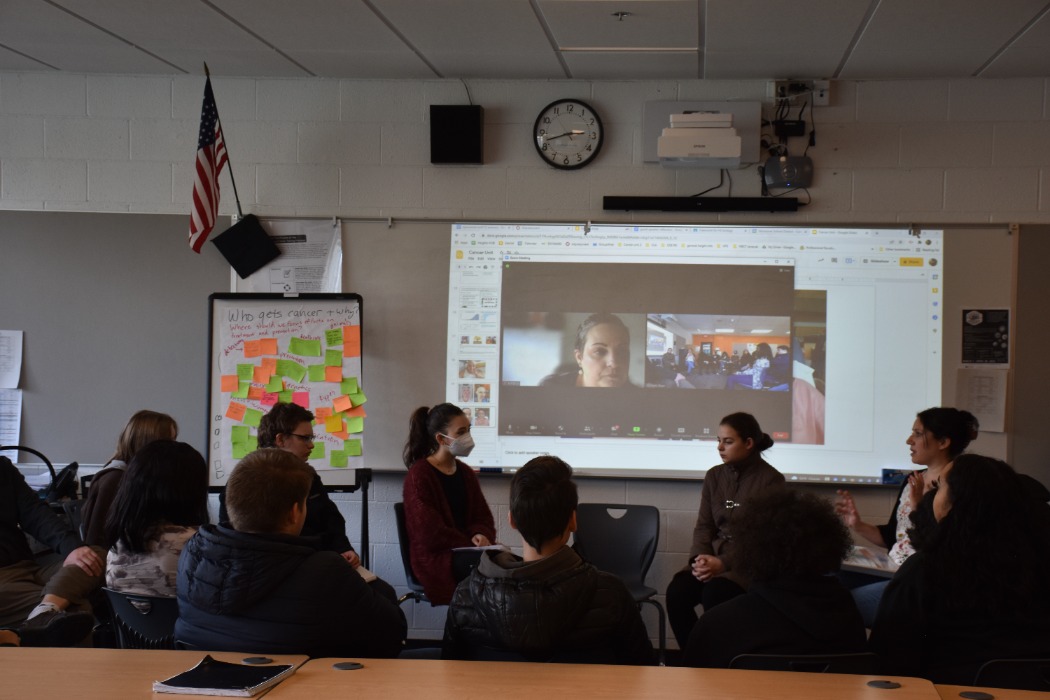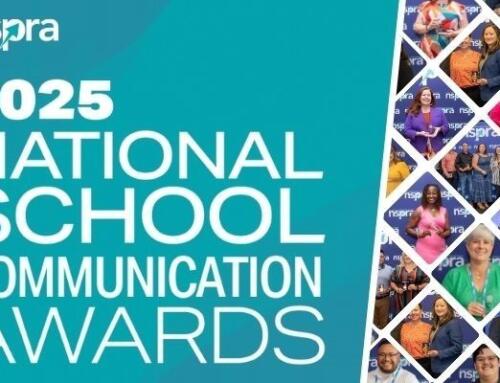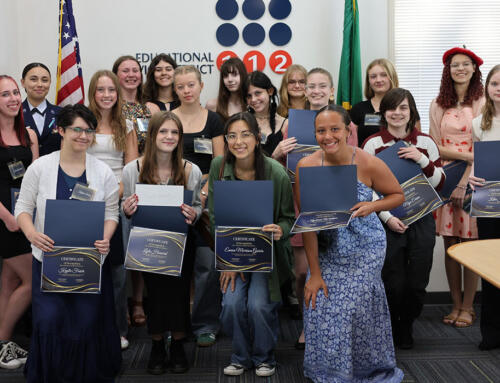William Baur’s high school biology class, which is piloting the high school OpenSciEd science curriculum, recently started a unit focused on cancer. After spending the first part of the school year focusing on ecosystems, Baur wanted to focus on a topic that would build upon students’ understandings of cells, DNA, proteins, and human body systems. Cancer can be a difficult topic to discuss, and with a large percentage (42%) of cancer cases being preventable, Baur hoped that by learning about the topic, his students would gain a greater awareness of who is at risk of developing cancer, and why.
At the start of every new science unit, students generate a list of questions about the subject, which they revisit throughout. One of the first questions that Baur’s students asked was, “How is female breast cancer caused?”
Just as he started teaching the unit about cancer with his students, Baur read about a podcast, Rotten Melons, hosted by two local Vancouver labor and delivery nurses and breast cancer survivors. He invited Deanna Berger and Meredith Pena to share their experiences and learnings, and help to answer one of their big questions: Where should we focus our efforts on treatment and prevention?
“I hoped that learning from a cancer survivor would be inspiring for my students, and motivate them to learn more about the topic,” said Baur. “Having an increased understanding may help them to avoid behaviors that increase their risk of developing cancer, and understand who is at a greater risk of developing cancer, and why.”
Most information available online and in various educational resources focuses on figures and hard facts, rather than the emotional and other aspects of what it feels like to have breast cancer. Through their weekly podcast, nurses Berger and Pena touch upon these lesser-known topics, such as hair loss, anxiety, chemotherapy, and toxic positivity. Baur contacted them in hopes of broadening his students’ understanding of what it means and feels like to have cancer from actual breast cancer survivors, providing their real-world accounts to enhance the learnings they’ve had so far. Based on student feedback, Berger and Pena’s visit to the class made a lasting impression.
“I realized that I’m not untouchable,” said tenth grade student, Moriah M. “Anyone can get cancer and I should start to just think about making sure I can do all I can to prevent myself from getting cancer.”
Having guest speakers like Berger and Pena share their experiences and wisdom about breast cancer and what it means to be a survivor ties in nicely to the OpenSciEd program goals. Their visit provided an opportunity for Baur to introduce his students to a real-world scenario that help them learn and engage with their particular STEM unit at a higher level.
“The students asked thoughtful questions and seemed to apply what they had learned so far to our experience,” said Berger and Pena. “Putting a face to a process and seeing how biology works in and is applied to real-life situations is so important in the learning process. Knowledge is power and hopefully they will take what they learned and use it to help others.”
___
OpenSciEd is an open source science curriculum available nationwide, providing teachers with free, downloadable materials that support an in-depth exploration of various scientific topics. The curriculum focuses on providing students with opportunities to learn about STEM concepts as they relate to real-life experiences through problem-based learning units. OpenSciEd instructional materials are research-based open education resources (OER) that adhere to Next Generation Science Standards and are designed to increase accessibility for all teachers and students.




 ESD 112 equalizes educational opportunities for learning communities through innovative partnerships, responsive leadership, and exceptional programs.
ESD 112 equalizes educational opportunities for learning communities through innovative partnerships, responsive leadership, and exceptional programs.